In collaboration with the Association of Indonesian Epigraphy Experts (PAEI), Archeology Study Program FIB Unud Held a Special Archipelago Epigraphy Discussion
Archeology Study Program FIB Unud Held a Special Nusantara Epigraphy Discussion with the theme "Efforts to Determine Balinese Inscriptions as Cultural Heritage" on Monday, April 22 2024 in the Soekarno Room FIB campus Pulau Nias Street 13, Denpasar. This activity was carried out in collaboration with the Association of Indonesian Epigraphers (PAEI).
This discussion invited Head of Bali Province Cultural Heritage Experts, Drs.I Made Kusumajaya, M.Si. and Vice Dean III FIB Unud also the member of Association of Indonesian Epigraphers, Komda Bali Nusra Sulawesi, Dr. Ni Ketut Puji Astiti Laksmi, S.S., M.Si. as the resource persons and this event was moderated by the lecturer of Archeology Study Program at FIB Unud, Rochtri Agung Bawono, S.S., M.Si.
This discussion was opened by the Dean of FIB Unud, I Nyowan Aryawibawa, S.S., M.A., Ph.D. and attended by the FIB Unud academic community and related government agencies. At his opening remark, the dean conveyed the urgency of conserving inscriptions in Bali therefore they could become the national cultural heritage in the future. Dr. Ni Ketut Puji Astiti Laksmi, S.S., M.Si. delivered material about reading epigraphy of classical historical heritage in Bali. In his material, Dr. Ni Ketut Puji Astiti Laksmi, S.S., M.Si conveyed the importance of ethics in reading epigraphy as an effort to conserve inscriptions and some people consider inscriptions in Bali to be sacred places. Drs. I Made Kusumajaya, M.Si. in the material conveys the legal basis and requirements for ancient sites to become Cultural Heritage from Regency to National Level.
In the discussion session, representatives from the Giayar Regency Culture Department asked about the obstacles to determining ancient sites as Cultural Heritage in Giayar Regency due to a lack of supporting data. Drs. I Made Kusumajaya, M.Si answered with the importance of educating the public about the need for access to ancient sites, because researchers have academic goals. Made Kusumajaya also added the importance of epigraphers and community leaders in the district archeology team. (gfp)
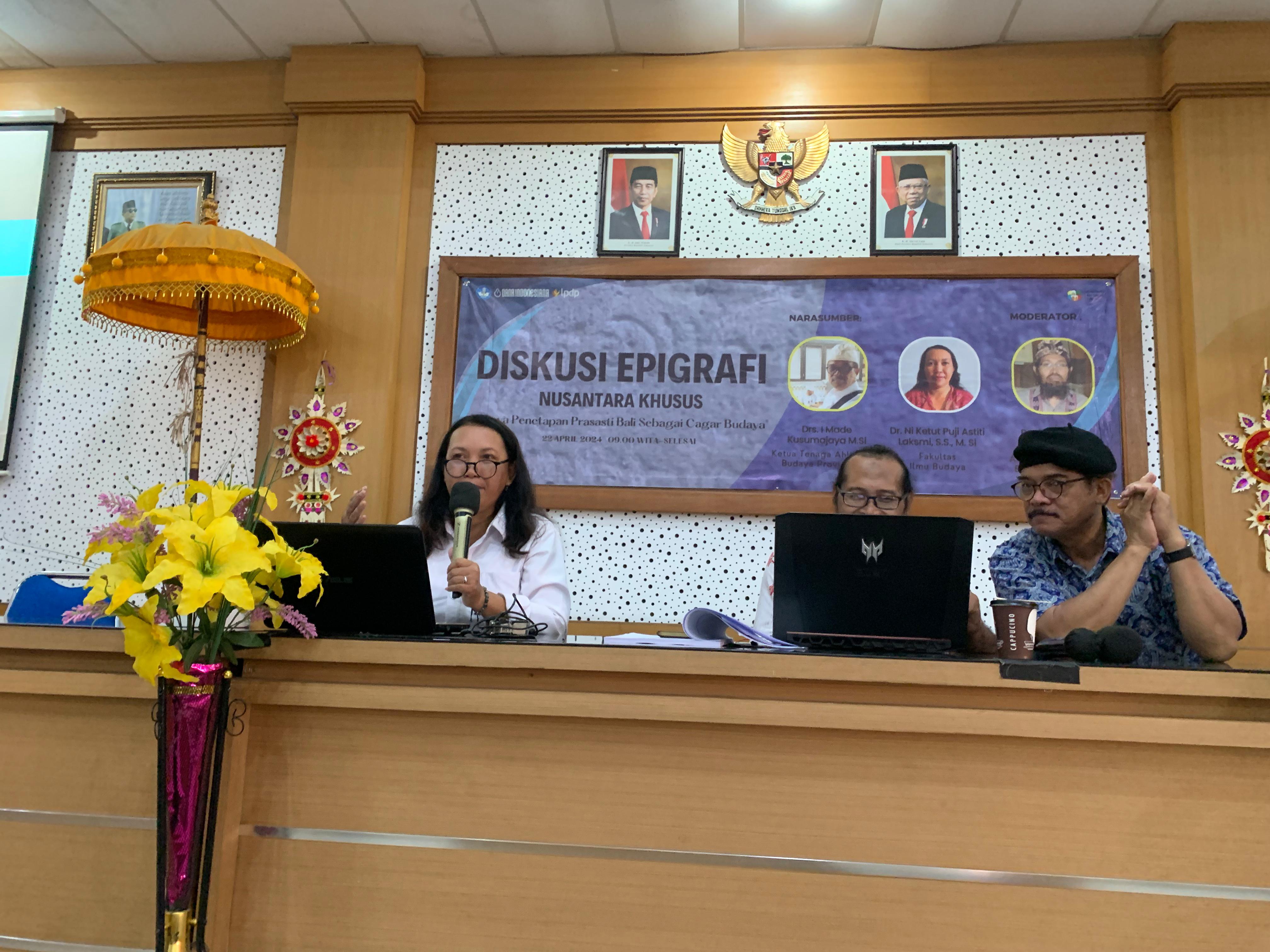
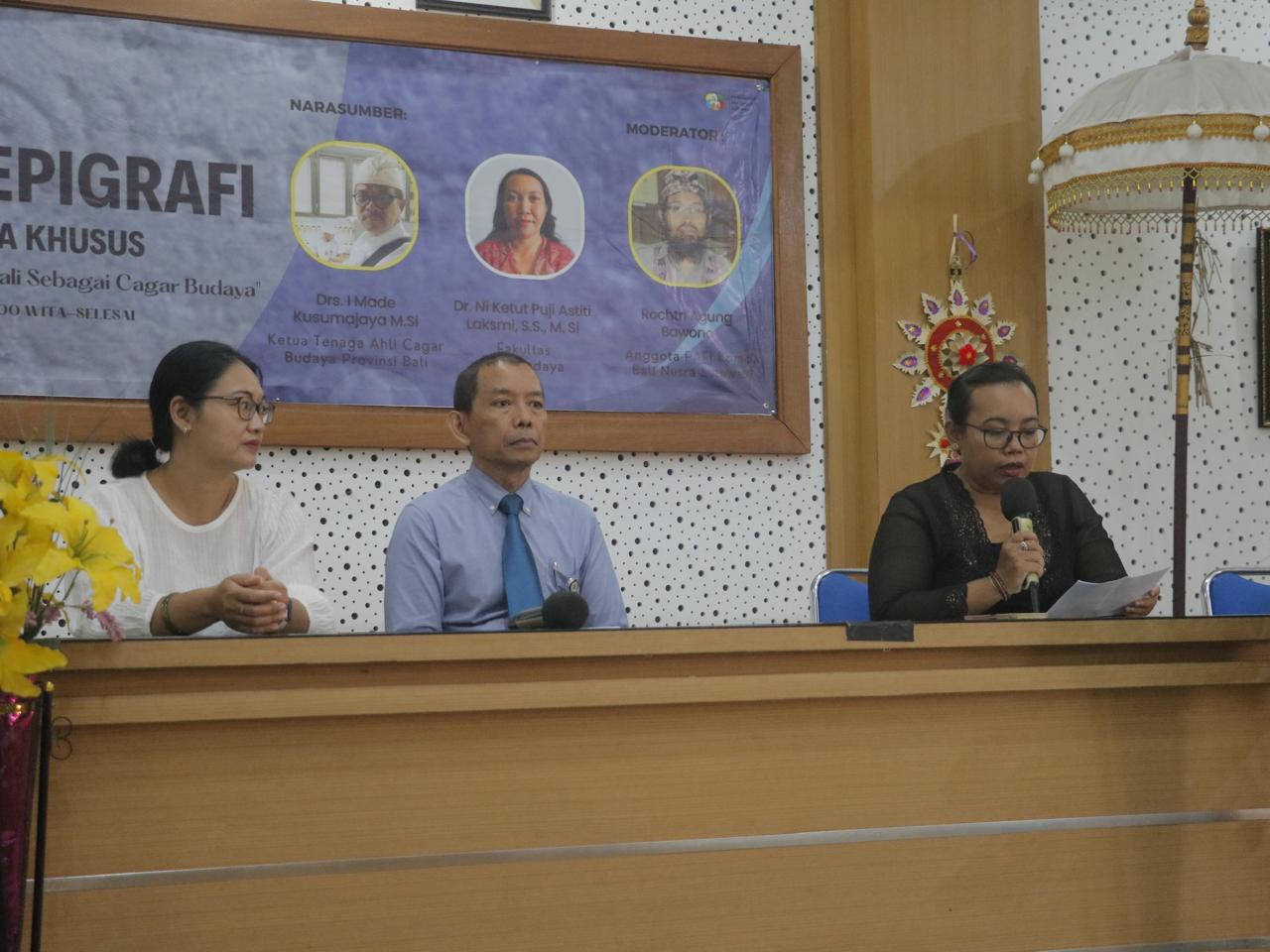
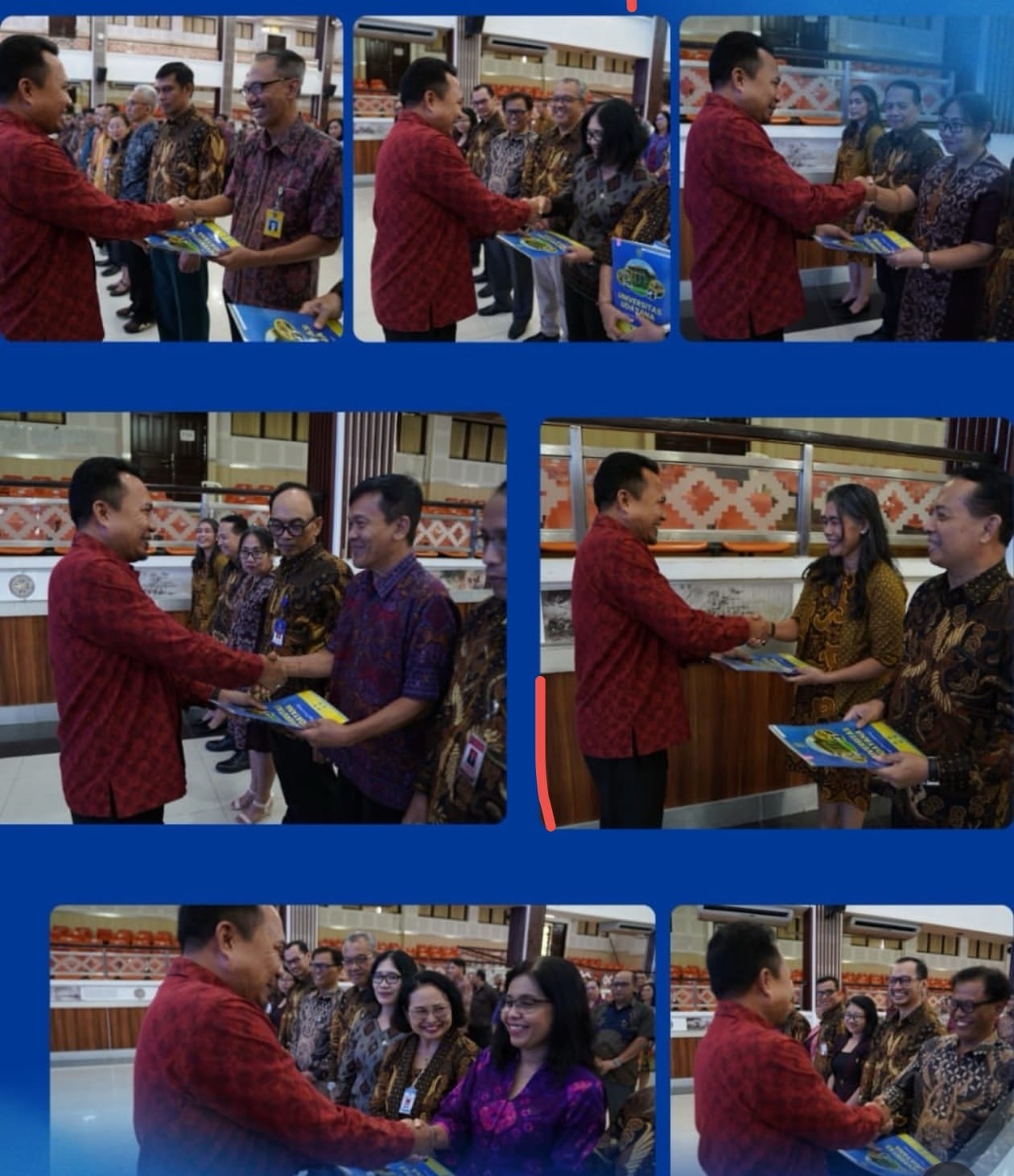
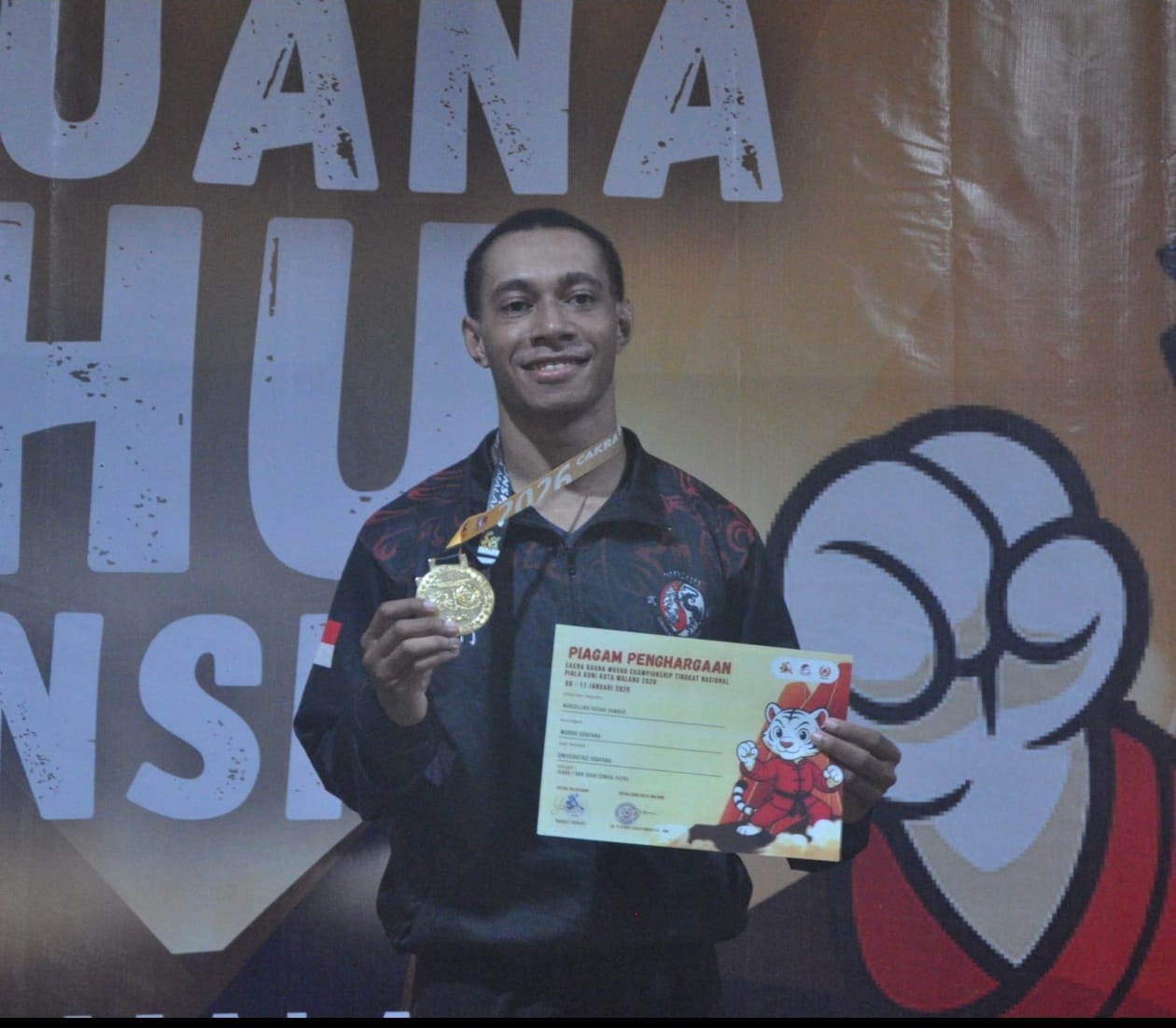
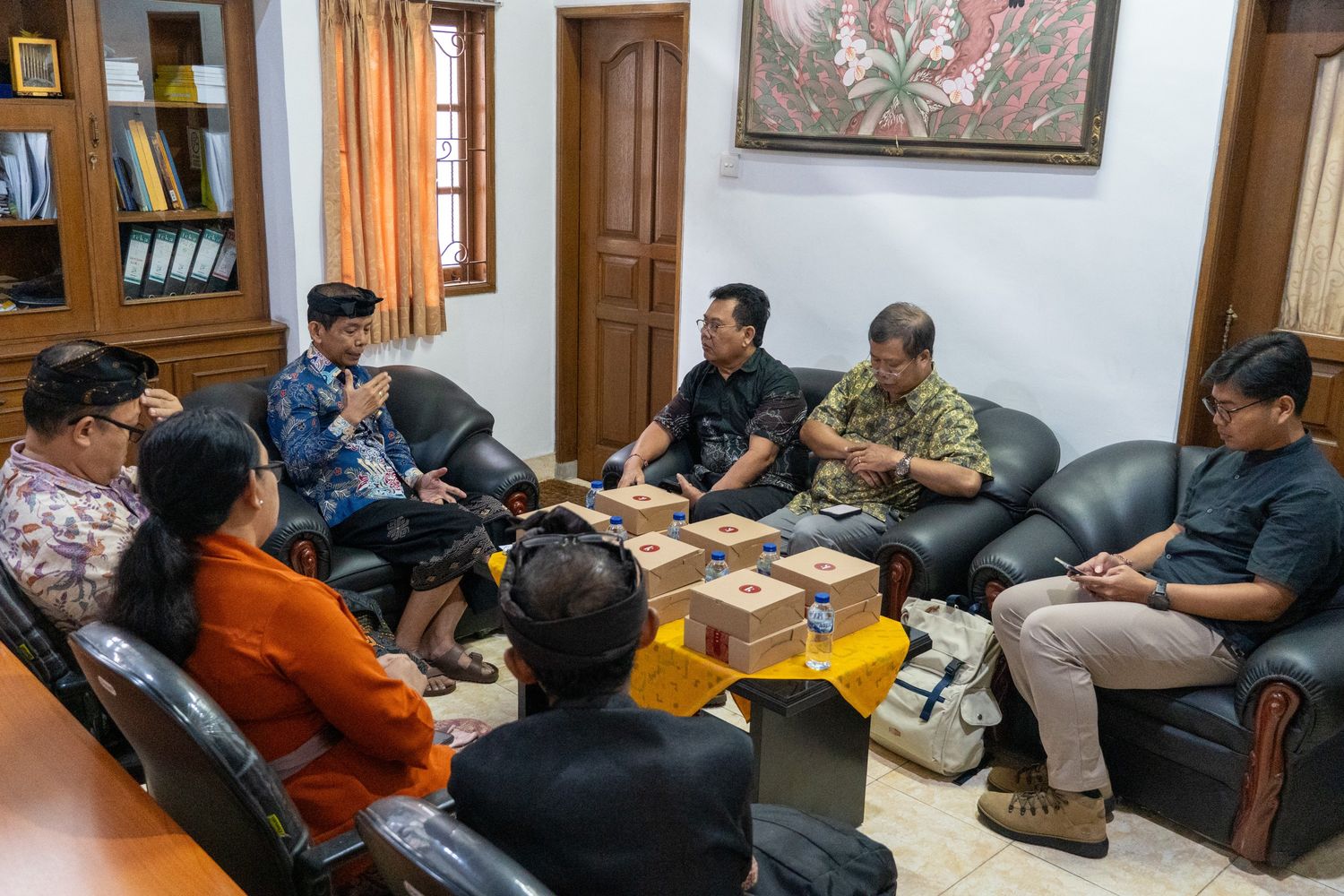
UDAYANA UNIVERSITY